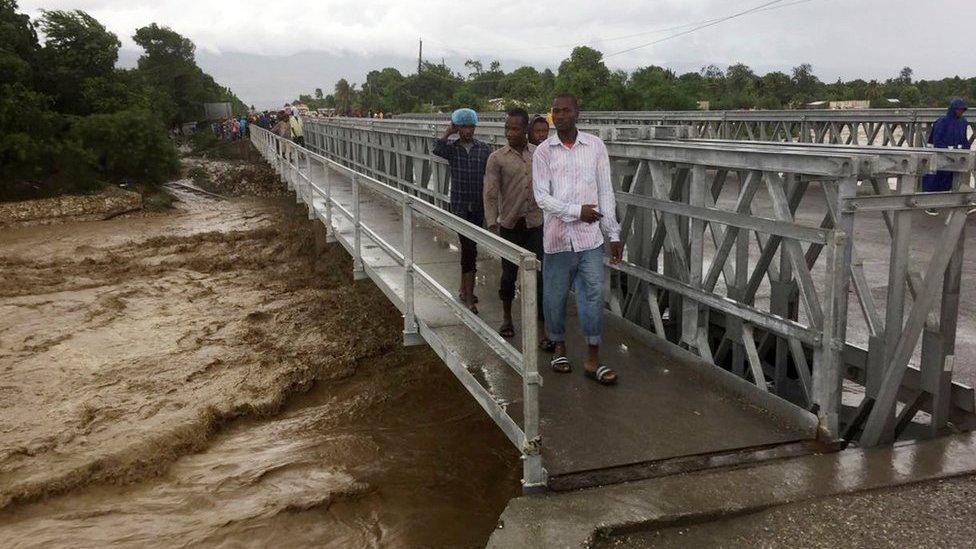Hurricane Matthew: Haiti in national mourning as aid gears up
- Published
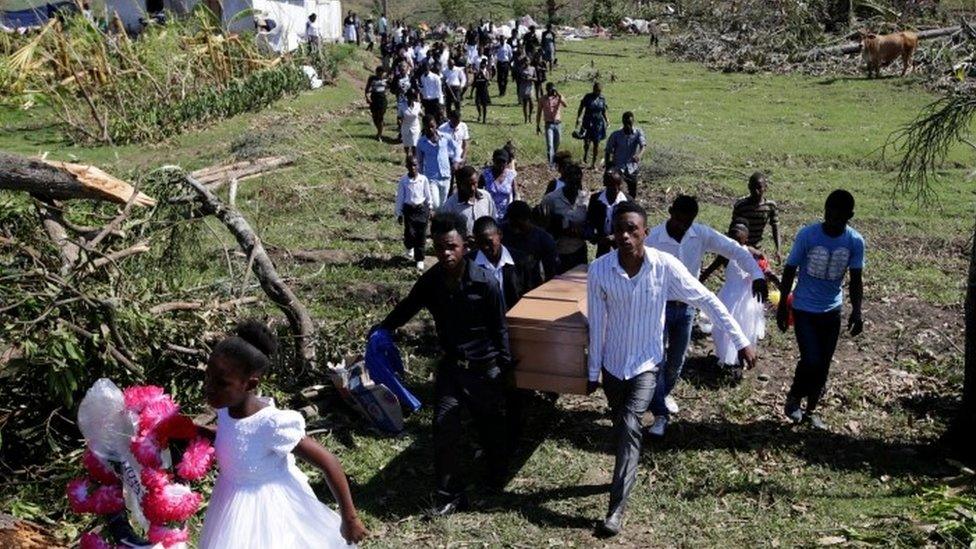
Haiti has been burying its dead but its survivors will need large-scale aid
Haiti has begun three days of national mourning for those killed by Hurricane Matthew, which devastated the south of the country.
At least 900 people are believed to have died. Tens of thousands of homes have been destroyed and some 350,000 people need aid, the government says.
Cholera is a major fear, with several deaths reported, as are food supplies, given the destruction of crops.
Matthew went on to barrel up the south-eastern coast of the US, killing 10.
It caused extensive flooding, power cuts and damage to buildings in Florida, Georgia and the Carolinas.
At 02:00 local time (06:00 GMT), the now Category 1 Matthew was about 30km (18 miles) off the coast of Cedar Island in North Carolina and heading north-east, further out to sea, at 16mph (25km/h), the National Hurricane Center, external said.
'No water'
Matthew passed directly through Haiti's Tiburon peninsula - encompassing Haiti's entire southern coast - driving the sea inland and flattening homes with winds of up to 230km/h (145mph) and torrential rain.
Jeremie is one of the worst-hit towns - some estimates say up to 80% has been destroyed
The international aid response in Haiti was now "beginning to pick up", according to Stephane Rolland, regional co-ordinator for the International Federation of the Red Cross (IFRC).
But the challenges remain immense, given the difficulties with infrastructure and reaching remote areas.
The official death toll remains at 336, but the government says this tally only includes fatalities confirmed by visits to villages. Many have not been reached due to collapsed roads and bridges.
The country's Civil Protection Agency says that number will rise.
On Friday, civil protection officials told the BBC that 877 people had died.
Beth Carroll, of the aid agency Catholic Relief Services, said: "The three needs that we've identified for the immediate response are food, water and shelter. A lot of people are outside; a lot of people do not have access to clean drinking water."
Cholera is a major worry. At least 13 people have died from the disease since the hurricane, as sewage and floodwaters mix.
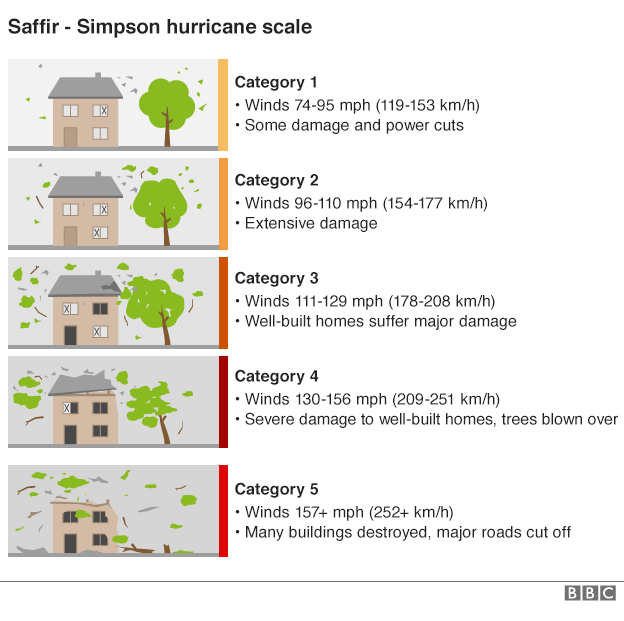
Eli Pierre Celestin, of the Haitian health ministry, reported cases in Randel, Port-a-Piment and Les Anglais, saying: "There are nurses but no doctors... People have started dying."
Cholera's short incubation period causes speedy outbreaks and deaths can be quick without treatment. The disease was brought to Haiti by UN peacekeepers after the earthquake of 2010 and has killed about 10,000 people.
The destruction of crops has been almost total in many parts of the Tiburon peninsula, with loss of livestock also bad.
Many people are running low on food.
Mother-of-three Jocelyne Saint Preux watched US aid arrive in the town of Jeremie. Officials handed out wheat, beans, oil and salt to a queue of people.
The BBC travelled with a medical team to the southern town of Port Salut, as Nick Bryant reports
"Yes, they brought food, but it's not sufficient,'' she told Associated Press. "There's no water. There's no charcoal."
The Red Cross has launched an emergency appeal for $6.9m (£5.6m) and Unicef said it needed at least $5m to meet the immediate needs of 500,000 affected children.
The US is adding 300 Marines from USS Mesa Verde to the 250 personnel it has already supplied. France is sending 60 troops and 32 tonnes of humanitarian aid.
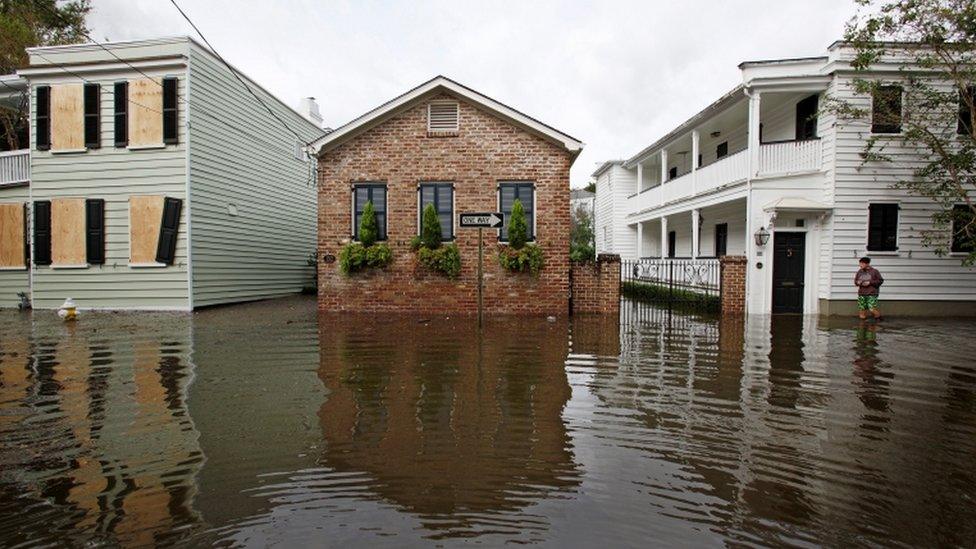
Parts of Charleston in South Carolina saw significant flooding
In the US, despite the widespread flooding, fallen trees and damage to buildings, many were relieved they had been spared Matthew's predicted onslaught.
Hundreds of thousands of homes and businesses lost electricity, and power companies are working to restore it.
Some parts of the US coast saw significant damage, such as Tybee Island in Georgia and St Augustine in Florida.
And as Matthew headed out to sea, it still hit coastal communities in North Carolina and Virginia with winds of 75mph (120km/h) and flash flooding.
Virginia Beach spokeswoman Erin Sutton said early on Sunday: "We are looking at very significant flooding. Almost every road in the city is impassable."
- Published8 October 2016
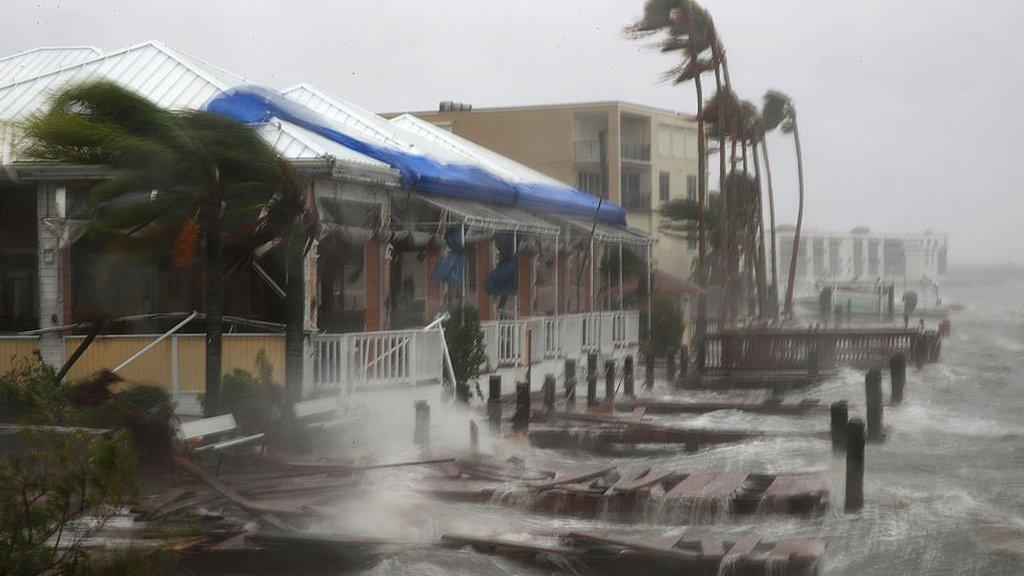
- Published6 October 2016
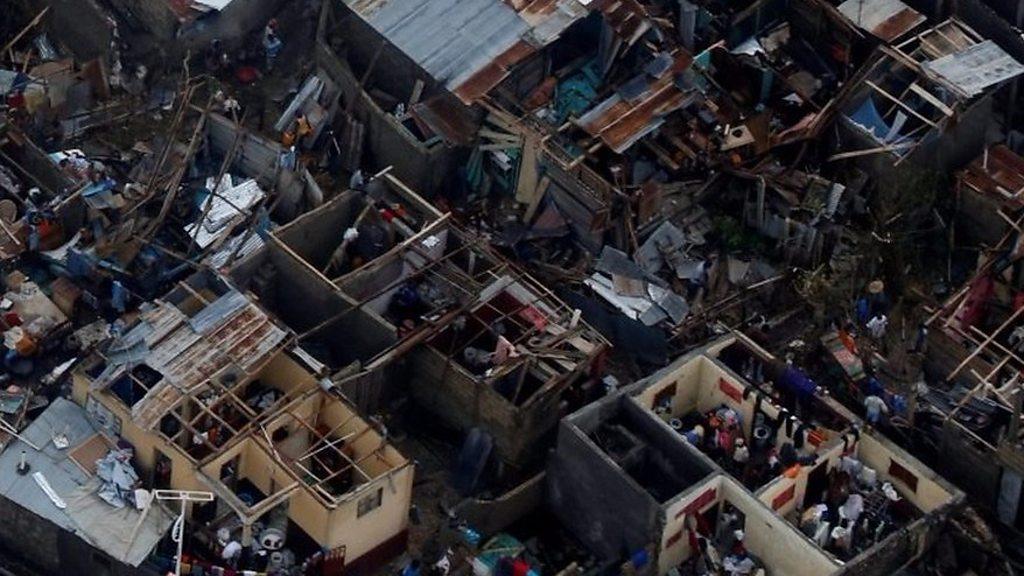
- Published6 October 2016
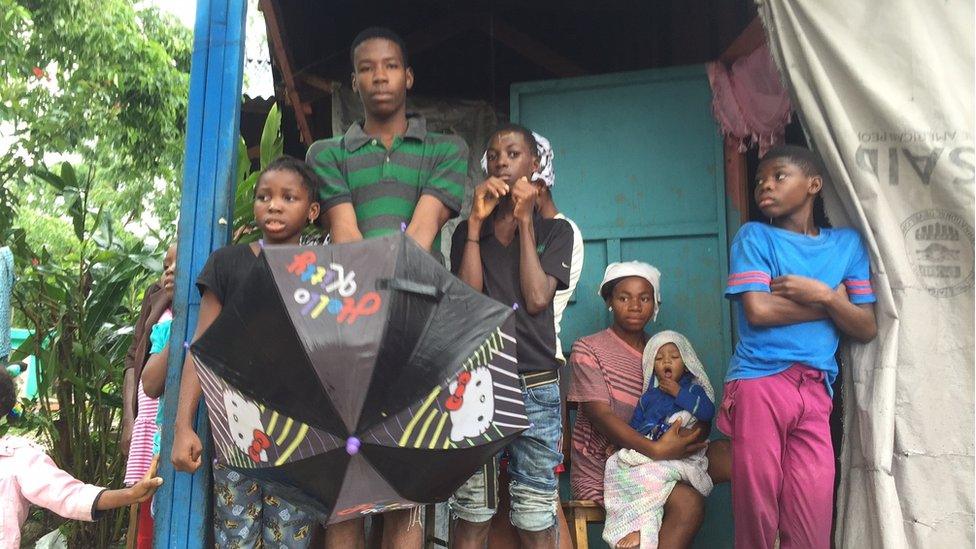
- Published4 October 2016
